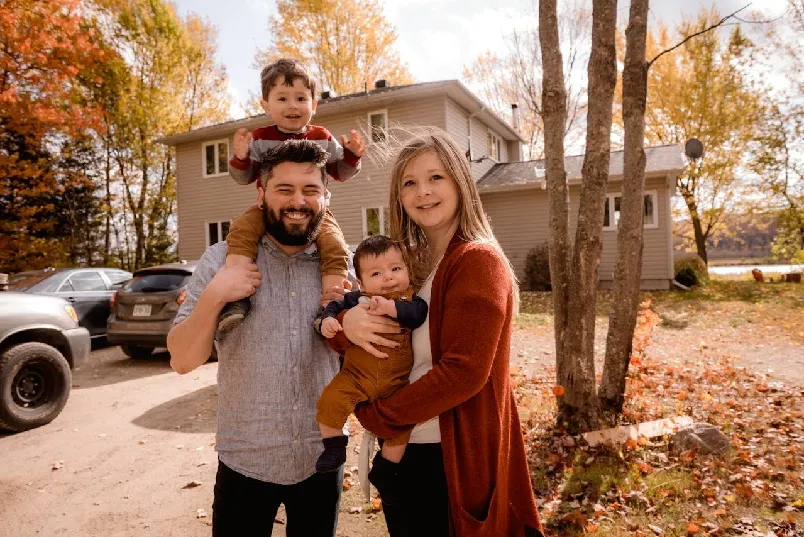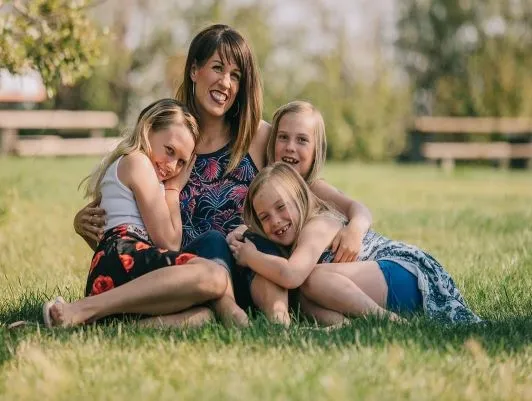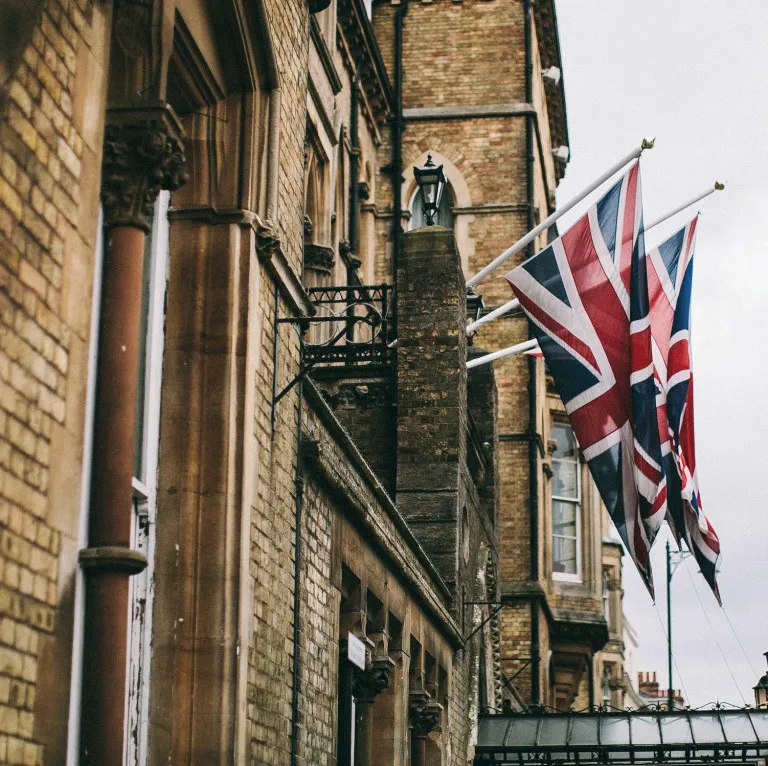FLR Visa
If you plan to continue your stay in the UK after your visa expires, you must apply for Further Leave to Remain (FLR).
For more information on the FLR visa applications and immediate help with your immigration situation, speak to one of our immigration advisers at +44 (0)333 414 9244 or contact us online.
Read our 1001 reviews
Request a call back from our immigration experts
Benefits of Choosing IAS’ Immigration Lawyers
At IAS, we understand that every case and client is unique, so we provide bespoke assessment and support to each client. With us, you get a dedicated immigration lawyer who is dedicated to ensuring your application is successful. Enjoy the following benefits with IAS:

Compassionate support from an experienced immigration lawyer dedicated to your success



Support in gathering supporting documents and completing a high-quality application.



A personalised Letter of Representation to help compile a compelling case for approval



Continued support from your lawyer in the event of any complications.
Services we Provide
FLR Visa Overview
Further leave to remain or FLR refers to an application made by non-British nationals living in the UK to extend their permission to stay in the country beyond the expiry date of their current visa.
All UK visas typically have an expiry date. Non-citizens who plan to continue to live in the UK beyond their visa’s validity must either switch to a different visa category or apply for FLR to continue on the same visa route.
Different categories of FLR cater to various visa types, including family, work, visit, and study routes. FLR also covers individuals who do not have valid permission to stay in the UK but qualify for a continued stay based on exceptional circumstances. Thus, the type of FLR application you will make will depend on your immigration situation.
Additionally, you must meet specific criteria related to your FLR category and show that you continue to meet the requirements of your original visa. For example, you may need to prove that you are still in a genuine relationship if applying to extend a family visa or still have employment if applying under a work visa.
With an FLR application, you can continue to live, work, or study in the UK without the need to leave the country and reapply for entry. Additionally, further leave to remain provides you with the legal continuous residence time you need to obtain Indefinite Leave to Remain (ILR).
Applying for FLR on time is essential, usually not more than 28 days before your current visa expires. If you fail to act before your visa ends, you’ll be considered an overstayer, which might make your application for further leave to remain more complex.
If you have questions regarding your FLR application or are unsure if you qualify to apply, contact one of our immigration lawyers at +44 (0)333 414 9244. You can also reach us online.
Understanding the Different FLR Categories
There are three major FLR categories or application forms outlined by specific codes, each with varying requirements and conditions. They include:
There are also other types of FLR that are less common. These include:
- FLR(HRO) – applies to those facing human rights issues in their home country and are unable to return due to serious risk of harm or persecution.
- Skilled Worker and Student FLR Extensions – these allow workers or students to continue working or studying so they can complete a contract or finish their course.
FLR(M)
The further leave to remain form in the ‘M’ category is designed for individuals looking to extend their stay in the UK on the basis of being a spouse, civil partner, unmarried partner, parent, or dependant child of a British citizen or settled person. It also applies to the dependents of individuals on humanitarian protection or refugee status.
Applicants under the FLR(M) route must have an existing leave to enter the UK with a Family Visa. However, applicants on other visas can also switch to a Family Visa using the FLR(M) application form if they meet the requirements.
Spouses and partners must meet the following requirements:
- Show that their relationship with the British or settled partner is genuine and subsisting
- Meet the minimum income requirement for the spouse/partner route
- Demonstrate their proficiency in the English language up to an A2 level on the Common European Framework of Reference for Languages (CEFR)
- Have appropriate accommodation
Parents applying to remain with a dependent child must show that their child has lived in the UK for at least seven years continuously. They must be able to prove to the UK Visas and Immigration (UKVI) that it would be unreasonable for them to leave the UK after their visa expires, for instance, if they are a sole or joint provider for the child.
In most cases, dependent children of British citizens or settled persons may be eligible for settlement or citizenship and may not need to apply for further leave to remain. As such, children who intend to extend their visas using the FLR(M) form must be any of the following:
- A child whose parent has indefinite leave to remain as the partner of a person with settled status
- One applying to remain in the UK with a person who was granted leave to remain on the basis of their family or private life in the UK
- A child with compelling reasons to remain in the UK and for whom suitable arrangements for their care have been made
Dependent children aged 18 or over can apply for FLR if they were under 18 when they were initially granted permission to stay in the UK.
FLR(IR)
Further leave to remain under the ‘IR’ category applies to individuals applying for extension under a wide range of visa categories, including:
- Standard Visitors under certain conditions (note that transit, Approved Destination Status, and Permitted Paid Engagements visitors are completely exempted from applying for FLR)
- Students
- UK Ancestry Visa holders
- Parents of a Child Student
- Dependents of a person with limited leave to enter or remain in the UK applying separately from the main applicant (excluding dependents of those on a points-based system or based on of family or private life.)
- Domestic workers in a private household
- Domestic workers who are a victim of slavery or human trafficking
- Civilian employees working in the UK directly or under contract for the NATO force, the Australian Department of Defence, or the American National Red Cross.
- Members of an Armed Force who is subject to immigration control (course F)
- Dependants of a member of an Armed Forces who are not HM Forces (dependants of a member of HM Forces should complete FLR(AF)
- Representatives of an overseas business
Each visa route under the FLR(IR) category has varying eligibility requirements. It is essential to check that you meet the criteria for your specific visa to have a successful application.


FLR(FP)
Further leave to remain applications under the ‘F’ and ‘P’ categories are used to extend an individual’s stay in the UK based on their family life or private life, respectively.
Further Leave to Remain Based on Family Life
Applications under family life cover partners, spouses, and parents of a British national or settled person who do not qualify for FLR(M) but qualify for an exception under the immigration rules.
An example of where further leave to remain may be granted using the FP form would be where an applicant does not have a valid leave to remain or is living illegally in the UK but has a British partner with whom they have a child together.
Another example could be where an applicant is divorced from their British or settled spouse and can no longer qualify for further leave to remain as a partner but has sole or shared joint parental responsibility for their British child.
In both cases, the child forms part of the applicant’s family life, and it would be unreasonable for the parent and child to leave the UK to remain as a family. Furthermore, applicants applying for an extension on the UK Spouse Visa route who do not meet the financial requirement may be able to apply through the FLR(FP) process.
However, granting further leave to remain would be based on the Home Office’s discretion.
Further Leave to Remain Based on Private Life
Further Leave to Remain applications under private life are solely based on an applicant’s circumstances rather than their family relationship. To qualify, an applicant must fulfil one of the following conditions:
- Have lived for a minimum of 20 years of continuous illegal stay (or both legal and illegal) in the UK if aged 18 or above
- Have lived at least seven years of continuous illegal stay (or both legal and illegal) in the UK if below 18
- Is aged between 18 and 24 and has lived continuously in the UK for at least half their age
In most cases, applications under private or family life are granted on a 10-year route to indefinite leave to remain.
Key Differences Between the FLR Categories
FLR(M), FLR(IR), and FLR(FP) are the different forms used to apply for further leave to remain. The key difference is in the type of leave granted through them.
The leave through FLR (M) is granted within the immigration rules and is for family-based visas. Applications submitted through the FLR(FP) form are for family visa extensions. However, the leave granted on the FP route is where conditions are outside the immigration rules or based on exceptional circumstances.
Furthermore, the FLR(IR) form is used to apply for visa extensions that are not family-based.
Required Documents for FLR Visa
To apply for further leave to remain, you must submit some supporting documents along with your application. The general documents for FLR visa applications include the following:
- A valid passport
- Copies of the photo page and any visa or entry stamps in your previous passports
- A copy of your biometric residence permit
- A certificate proving you pass the English language test
- Details of any criminal convictions
- A return ticket (if you are extending your visitor visa)
Other documents you need will depend on your visa type. For instance, if you’re applying for a Spouse Visa extension, you’ll need to submit the following additional documents:
- Proof of your relationship with your British family member, such as a marriage, birth certificate, or civil partnership certificate
- Proof of a genuine and subsisting relationship with your UK partner with documents such as a tenancy agreement or utility bills showing you live at the same address
- A bank statement showing you meet the financial requirement (for Spouse Visa extension)
Application Process for FLR Visa
The FLR visa application process involves filling out the online application form with your personal information.
There are different forms for the FLR application, so it is essential to fill out the form that suits your circumstances. Using a different form might result in your application being rejected.
You must also submit the required documents and pay the applicable fees before submitting your online application.
Afterwards, book and attend an in-person appointment to provide your biometrics (fingerprints and photograph).
Support and Guidance for FLR Visa Application
The FLR Visa application process can be complex and daunting due to its strict eligibility criteria, varying documentation requirements, and varying application fees. Without the proper support, applicants may find it challenging to navigate the process successfully.
To increase your chances of success, it’s essential to seek support from a UK immigration expert.
From our lawyers at IAS, you can get information on the best time to make an FLR application based on your current visa’s expiration date, how to complete the online application form, help with gathering your supporting documents, and how to book and attend your biometric appointment.
For immediate help with your FLR application, contact one of our lawyers at +44 (0)333 414 9244.


Switching Visa Categories for FLR Visa
Non-British nationals in the UK can use the further leave to remain framework to switch from one valid visa route to another and extend their stay in the country. For instance, someone on a work or study visa can apply for FLR(M) if they have a British or settled family member and meet the other criteria for the Family Visa route.
However, it’s essential to consider how a switch can impact your qualification for permanent residency, particularly if you were on a visa that already counts towards ILR.
Transitioning to a Family Visa will reset the 5-year continuous residence period you must fulfil to be eligible for settlement.
Call +44 (0)333 414 9244 to discuss your immigration situation with one of our lawyers at IAS before deciding on switching to another visa route.
Duration of Leave Granted for FLR Visa
The length of stay for a successful further leave to remain application differs depending on your FLR category and visa type.
If your extension application is granted on the FLR(M) route, you can stay in the UK for 2.5 years (30 months). Afterwards, you may be eligible for ILR if your previous permission to stay was with a long-term Family Visa.
However, applicants with a fiance or proposed civil partner visa and those who switched from another UK visa category, such as a work visa, to a Family Visa, must make another FLR(M) application to complete the five years required for ILR.
The length of stay for applicants applying via the FLR(IR) category will depend on their specific visa type. For instance, UK Ancestry Visa holders can stay for an additional 5 years, representatives of an overseas business can stay for an extra 2 years, and visitors can only stay for 6 months.
Furthermore, the duration of leave granted on the FLR(FP) route is 2.5 years (30 months). That means applicants on the 10-year route must make at least two more FLR applications to be eligible for ILR.
However, it is possible to switch to the 5-year route during any extension application and apply for FLR(M) if they qualify. This can shorten the time to get ILR.
Cost of Applying for FLR in the UK
The application fee for FLR applications varies. If you are applying using the FLR(M) or FLR(FP) forms, you must pay £1,321.
However, when applying for FLR(IR), the cost will depend on your visa type. Here’s a breakdown of the cost of extending some visa types under FLR(IR):
- Visitor visa: £1,100
- UK Ancestry, parents of a child student, overseas domestic worker visas: £1,321
- Representatives of an overseas business: £885
- Student Visa: £524
- Domestic workers who are a victim of slavery or human trafficking: Free
In addition, you’ll be asked to pay a biometric enrollment fee of £19.20, and depending on your visa type, you may also pay an immigration health surcharge of £1035 for each year you’ll be in the UK.
What Can I Do if My FLR Application is Denied?
If your FLR application is denied, your decision letter will state if you can apply for an administrative review. If it says you can, you’ll usually need to do so within 14 days of getting the decision.
If you are not eligible for an administrative review, you may have the right to a judicial appeal, which will also be stated in your decision letter.
FLR applications can be refused for a number of reasons but it does not mean the decision is final. Reach out to IAS for advice on how to proceed and how we can help you successfully gain further leave to remain in the UK.
How Can IAS Help?
Applying for further leave to remain can be as complex as applying for an initial visa. In some cases, it could even be more complicated, particularly if your situation has changed since you arrived in the UK.
However, our team of immigration professionals at IAS can help you with your FLR application. We have extensive knowledge of UK immigration law and years of experience helping individuals and families maintain their legal stay in the country.
We can help you with every aspect of your application, from determining which FLR category best suits your situation and gathering your documents to helping you submit an accurate online application.
Our team have helped many people deal with a FLR rejection and we have experience in handling complex cases.
If you’d like to get started on your further leave to remain application right away, call us at +44 (0)333 414 9244. We’re also available to help you online.
Table of Contents
Table of Contents will appear here.Legal Disclaimer
The information provided is for general informational purposes only and does not constitute legal advice. While we make every effort to ensure accuracy, the law may change, and the information may not reflect the most current legal developments. No warranty is given regarding the accuracy or completeness of the information, and we do not accept liability in such cases. We recommend consulting with a qualified lawyer at Immigration Advice Service before making any decisions based on the content provided.
Frequently Asked Questions
The processing time for further leave to remain applications depends on your visa type. Student, Spouse, Visitor, and most Work visa extensions usually take around 8 weeks to process, whereas FLR based on private life and Parent Visa extensions can take up to 12 months to process.
If you are on a visa that leads to permanent settlement, such as a Family Visa, you can apply for further leave to remain each time your visa expires as many times as you want to, as long as you still meet the visa requirements.
However, if you are not on a visa route that leads to settlement, such as a Visitor Visa, you may not be allowed to apply for FLR for more than the total allowable time on the visa as stated in the immigration rules.


What our clients are saying
How our UK Immigration Lawyers can help
At the Immigration Advice Service our lawyers specialise in a wide range of UK visas, nationality and asylum applications and have represented clients in various successful complex and high-profile cases.















